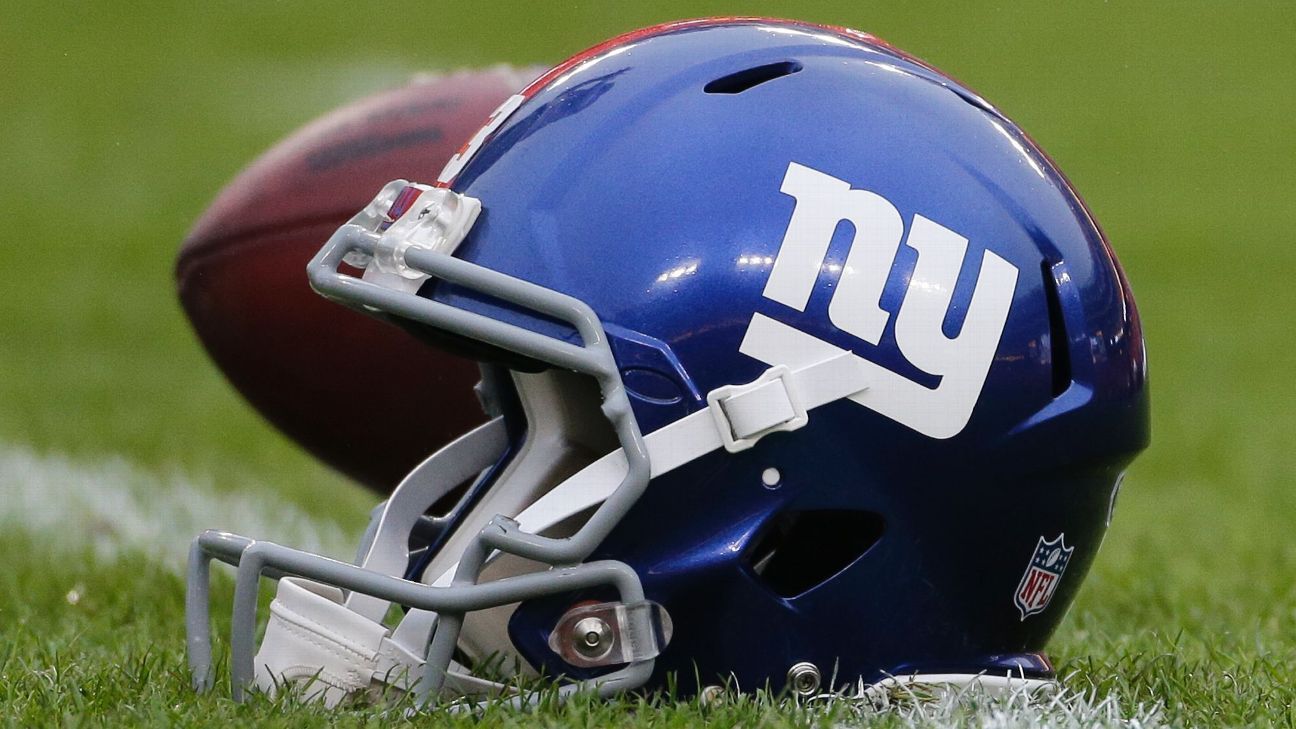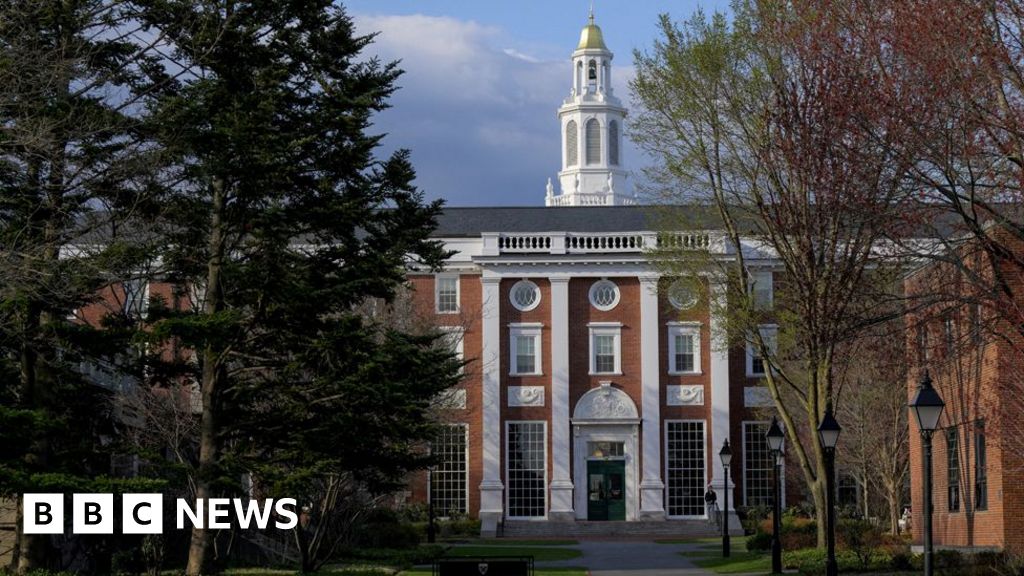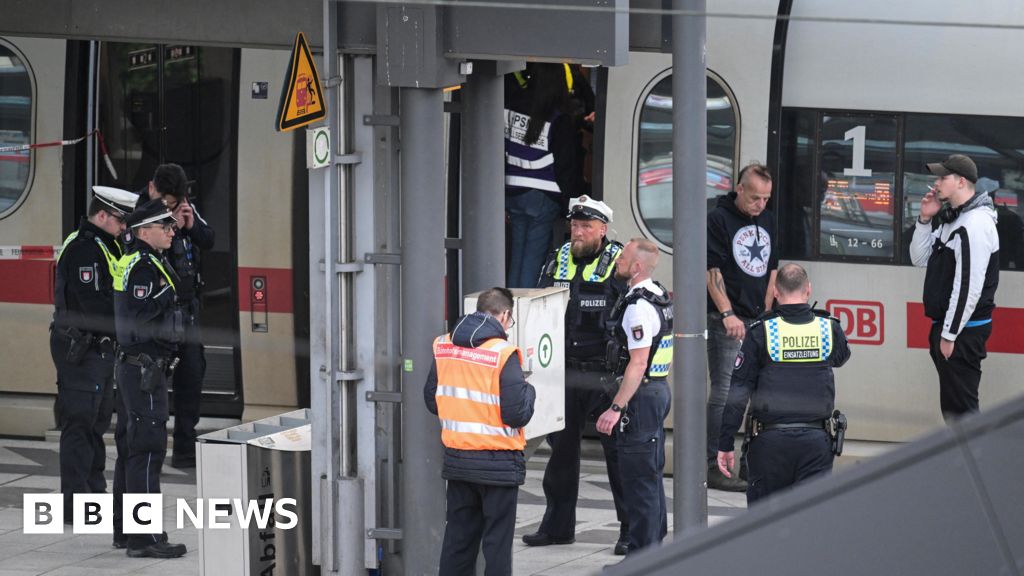A judge has issued a temporary restraining order blocking the Trump administration’s plan to strip Harvard University of its ability to enrol foreign students.
The ruling came after Harvard filed a lawsuit – the latest escalation of a dispute between the White House and one of America’s most prestigious institutions.
The university said the administration’s decision on Thursday to bar international students was a “blatant violation” of the law and free speech rights.
The Trump administration says Harvard has not done enough to fight antisemitism and change its hiring and admissions practices – allegations that the university has strongly denied.
US District Judge Allison Burroughs issued a temporary restraining order in a short ruling issued on Friday.
The order pauses a move that the Department of Homeland Security made on Thursday to revoke Harvard’s access to the Student and Exchange Visitor Program (SEVP) – a government database that manages foreign students.
“With the stroke of a pen, the government has sought to erase a quarter of Harvard’s student body, international students who contribute significantly to the University and its mission,” Harvard argued in the lawsuit.
“We condemn this unlawful and unwarranted action,” Harvard President Alan Garber said in a letter.
“The revocation continues a series of government actions to retaliate against Harvard for our refusal to surrender our academic independence and to submit to the federal government’s illegal assertion of control over our curriculum, our faculty, and our student body,” he wrote.
In response, White House deputy press secretary Abigail Jackson said: “If only Harvard cared this much about ending the scourge of anti-American, anti-Semitic, pro-terrorist agitators on their campus they wouldn’t be in this situation to begin with.
“Harvard should spend their time and resources on creating a safe campus environment instead of filing frivolous lawsuits,” Jackson said in a statement.
After the restraining order was issued, Ms Jackson accused the judge in the case of having a “liberal agenda”.
“These unelected judges have no right to stop the Trump Administration from exercising their rightful control over immigration policy and national security policy,” she said.
There are around 6,800 international students at Harvard, who make up more than 27% of its enrolled students this year.
Around a fifth of those international students are from China, with significant numbers from Canada, India, South Korea and the UK. Among the international students currently enrolled is the future queen of Belgium, 23-year-old Princess Elisabeth.
Leo Ackerman was set to study education and entrepreneurship at Harvard beginning in August, with the hopes of helping children “fall in love with learning”.
He heard the news on Thursday during a Zoom call with other international students, he told the BBC.
“I’ve had this dream of studying in the US and experiencing that amazing college system, which I just think is one of the best in the world. I was really excited, and I’m still really excited if I manage to go there,” Mr Ackerman said.
“Having it taken away feels like a really sad moment for a lot of people,” he added, though he still held out hope that Harvard’s legal action would allow him to continue his studies there.
Eliminating foreign students would take a large bite out of Harvard’s finances. Although foreign students are eligible for financial aid, they are generally not able to access US federal grants and loans.
Experts say international students are more likely to pay full tuition, essentially subsidising aid for American students.
Undergraduate tuition – not including fees, housing, books, food or health insurance – will reach $59,320 (£43,850) in the coming academic year, according to the university, and the total cost of a year at Harvard before any financial aid is usually significantly more than $100,000.
The Trump administration has taken aim at Harvard and other elite institutions, not only arguing that they should do more to clamp down on pro-Palestinian activists but also claiming they discriminate against conservative viewpoints.
It has launched investigations into dozens of universities across the country and wrung concessions from other major US institutions like Columbia University in New York.
On Friday, speaking from the Oval Office, President Donald Trump said “Harvard is going to have to change its ways” and suggested he is considering measures against other universities as well.
In April, the White House froze $2.2bn (£1.7bn) in federal funding to Harvard, and Trump has threated to remove the university’s tax-exempt status, a standard designation for US educational institutions.
The funding freeze prompted an earlier Harvard lawsuit, also asking the courts to stop the administration’s actions.
Harvard, one of eight elite Ivy League universities, is located just outside Boston in Cambridge, Massachusetts.
While Harvard leaders have made concessions – including dismissing the leaders of its Center for Middle Eastern Studies, who had come under fire for failing to represent Israeli perspectives – the latest lawsuit indicates the university is willing to fight the Trump administration in court.
The university has enlisted several high-profile Republican lawyers in its battle, including an advisor to the Trump Organization and Robert Hur, a former special counsel who investigated Joe Biden’s retention of classified documents.
Foreign students currently attending Harvard have expressed worries that the row between their institution could force them to transfer to another university or return home. Being logged on the SEVP system is a requirement for student visas and, if Harvard is blocked from using the database, students could be found in violation of their visas and potentially face deportation.
Chinese student Kat Xie, who is in her second year in a STEM programme, told the BBC she is “in shock”.
“I had almost forgotten about [the earlier threat of a ban] and then Thursday’s announcement suddenly came,” she said.
Several British students who are enrolled at Harvard, who spoke to the BBC on condition of anonymity because they fear being identified by immigration authorities, expressed concerns that their US education could be cut short.
“Getting into Harvard was like an absolute dream. I had worked very hard to get in,” said one student.
“I definitely think freedom of speech is a problem on campus, but it’s being actively worked on… it was an absolute shock when yesterday’s announcement happened.”
“There’s a lot of anger, people feeling like we’re being used as pawns in a game,” she said.
With reporting from Bernd Debusmann at the White House and the BBC’s User Generated Content team
Source link
















